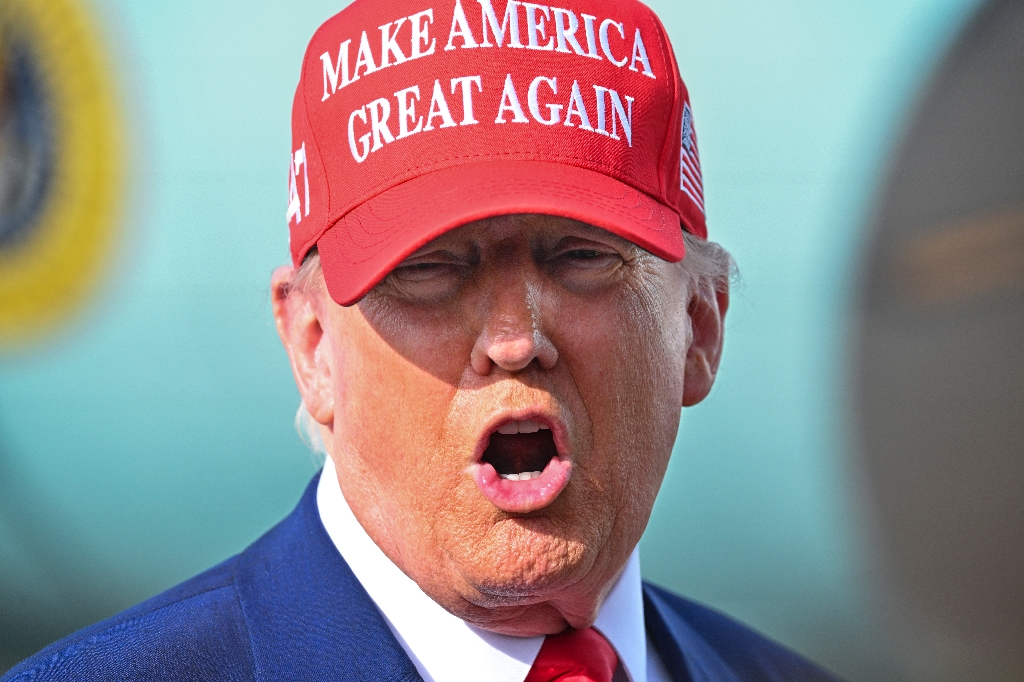(AFP) – A top US lawmaker said Wednesday he would visit Taiwan for the inauguration of President-elect Lai Ching-te, a year after his last trip to the self-governing democracy provoked anger from China.
Representative Mike McCaul, who leads the House Foreign Affairs Committee, spoke alongside Taiwan’s representative in Washington and lawmakers from both parties at an event in the US Capitol marking 45 years since a landmark law to support Taiwan.
“I’ll be leading a delegation to Taiwan to celebrate the president’s inauguration,” McCaul said of the ceremony set to take place on May 20.
McCaul last visited Taiwan in April 2023 to meet President Tsai Ing-wen. China responded with a show of military force and later imposed sanctions on McCaul, a Republican from Texas.
“The last time I visited Taiwan, I was greeted very warmly by President Tsai but not so warmly by the CCP,” McCaul said, referring to the Chinese Communist Party.
“It’s an illustration in terms of the aggression that we’re seeing out of China right now,” he said.
China claims Taiwan, where the mainland’s defeated nationalists fled in 1949. It has since grown into a competitive democracy and leading high-tech economy, although Beijing has not ruled out using force to “reunify” the two.
China has voiced anger at any hints of official independence for Taiwan. It staged a massive show of force in 2022 and cut off areas of cooperation with the United States after a visit by then US House speaker Nancy Pelosi, who again showed support for Taiwan at Wednesday’s event.
US-China relations have stabilized since then, with President Xi Jinping visiting California in November following visits to Beijing by top US officials including Secretary of State Antony Blinken.
China has previously lashed out at President-elect Lai, who is Tsai’s vice president and has historically emphasized Taiwan’s separate identity.
But US officials were cautiously upbeat about containing tensions over Taiwan’s January election, saying that Beijing’s actions have not broken any past precedents.
US President Joe Biden sent an “unofficial” delegation of two former senior officials to Taiwan to meet Lai shortly after his election.
– Bipartisan support –
The United States switched recognition in 1979 from Taipei to Beijing. Only 11 countries plus the Vatican still recognize Taiwan.
The US Congress responded to the move in 1979 by passing the Taiwan Relations Act, which requires the United States to provide weapons to Taiwan to defend itself and ensures that Taiwanese representatives in the United States are treated as foreign diplomats in all but name.
Taiwan’s de facto ambassador Alexander Tah-Ray Yui, who recently took over after his predecessor Hsiao Bi-khim was elected vice president under Lai, voiced gratitude to the United States over the assurances.
The law provides Taiwan with “security and the political space to create a vibrant democracy and a system that respects human rights, the rule of law and market-based economic principles,” Yui said.
Unusually in polarized Washington, Taiwan has enjoyed broad bipartisan support, with Republicans warning of threats from China and Democrats hailing the status of human rights in Taiwan, Asia’s frontrunner in LGBTQ equality.
Representative Ted Lieu, a progressive Democrat born in Taiwan, said that there was consensus in Congress “to have Taiwan be able to defend itself.”
He urged Speaker Mike Johnson, a Republican, to allow a vote on a $95 billion package passed in the Senate that would authorize assistance to Taiwan alongside Ukraine and Israel.
Johnson has sought to tie the bill to calls led by Republican presidential contender Donald Trump to take tougher action against migrants seeking to enter the United States. – Shaun TANDON
© 2024 AFP




